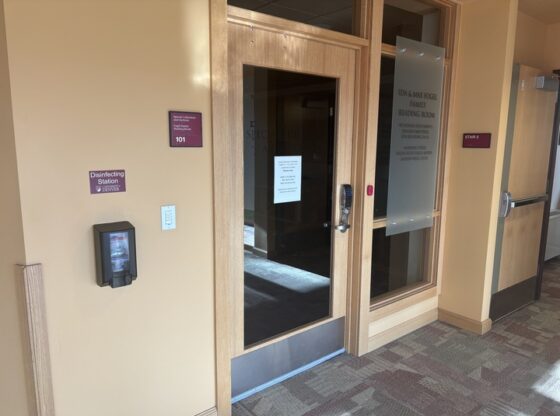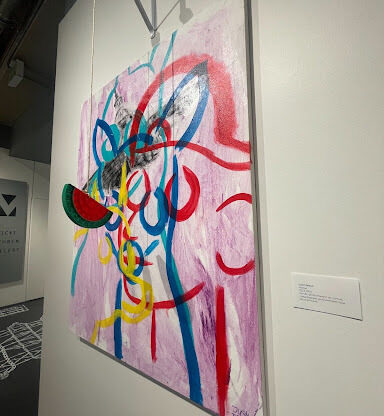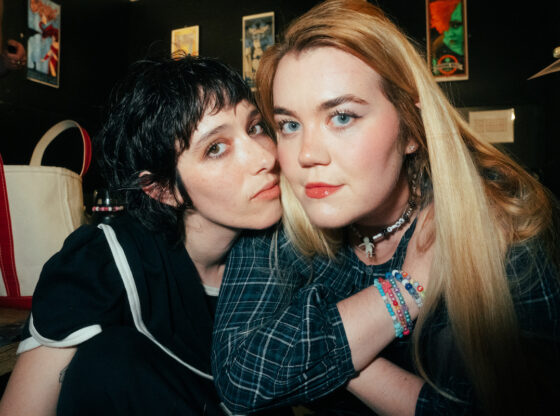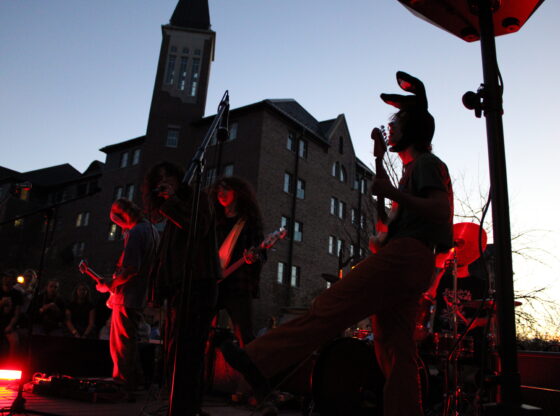On his sophomore album, the dreamy, introspective “Care For Me,” Chicago rapper Saba offers a soul-baring image of a young man reeling from intense loss and grief, yet still finding hope. Saba, who first gained attention with his features on Chance the Rapper’s projects “Acid Rap” and “Coloring Book,” has become known in the underground for his warm, jazzy production and deeply reflective lyrics. In his music, he discusses issues of racism, violence and poverty in his neighborhood and city (Westside Chicago) and the difficulties of being young in our modern times.
His rapping is at times fastpaced and hard-hitting, with a hint of simmering anger and dissatisfaction. Other times, Saba slows and slurs his deeply poetic lyrics to match the sunny nature of his production. He doesn’t get bogged down in lengthy metaphors or complex rhyme schemes, instead providing the listener with easy-to-grasp, but still poignant—and at times, deeply haunting—lyrics. His storytelling, showcased in songs such as his feature on Joey Purp’s “Cornerstone” and “PROM/KING” off of “Care For Me,” connects him with the greats of narrative rapping, a young descendant of Nas and Kendrick.
While Saba’s collaborations and other projects connect him with other buoyant, poetic rappers (such as Noname and Smino), “Care For Me” loses some of the happiness and lighthearted lyrics and production. “Care For Me” is dark—a reflection on the deepest hurts of human nature. The album reflects on the loss of his close friend, collaborator and cousin Walter Long, Jr., who was murdered in 2017. “Care For Me” isn’t only about dealing with grief of a single personal death but also the grief of a life spent dealing with the deaths of friends and the inherent dangers of life on the Westside of Chicago. As he states on “PROM/KING,” “Sometimes I f•ckin’ hate Chicago, ‘cause I hate this feelin’ / Innocent n****s get shot at, in the broad day, the A.M.” It’s also a reflection on the pains of being a young adult, of depression and the dangers and problems that come with producing art and fame. On “LOGOUT,” for example, Saba and featured guest Chance the Rapper, both ruminate over the struggles of fame in the digital landscape. On the chorus, Saba raps, “If you press logout, you get forgotten, what’s a post but a reminder?”
On the album, the bouncy, heady beats of “Bucketlist” and Saba’s other mixtapes are replaced by a still atmospheric but gloomy production that combines upbeat, dreamy instrumentals with piercing jazz breakdowns that hit hard and fast. Saba employs a spectacular control of his voice and cadence, being able to rise and fall in tempo to convey complex emotions and thoughts. On “LIFE” for example, a track that deals specifically with Saba’s state and ability to deal with “life” after the death of his cousin, Saba combines exasperatedly crooned lines dealing with his hurt, with a rapid fire, angry, short-breathed chorus that bluntly showcases glimpses into his pain: “That’s life / Momma mixed the vodka with the Sprite / They killed my cousin with a pocket knife.”
The standout track of the album, and one of the best of the year, is the aforementioned two-part “PROM/KING.” The song is a perfect example of hauntingly beautiful, emotive storytelling. It seems analogous to Kendrick Lamar’s masterpiece, “Sing About Me, I’m Dying of Thirst.” The first part of the tour-de-force track, laid over an evocative piano beat, showcases a slowly rapping, rosy-eyed Saba discussing his experience at prom in highschool, a story that introduces us to his cousin Walter and the ignorant, risk-taking nature of Saba and his peers.
The second part of the song has the beat increase in intensity and speed, along with Saba’s rapping. The first verse paints a lighthearted picture as Saba describes his life and relationship with Walter post-highschool, detailing their starts in the music industry.
The beat simmers down at the start of the second verse as Saba starts to rap faster and irritated, gasping for breath as he describes the days leading up to his cousin’s death. Saba’s voice seems to battle the beat, as they both rise in red-faced anger and tempo. His rapid-fire bars describe the night his cousin died, receiving a call in the studio from Walter’s mom, asking if Saba knows where he is. Saba’s last bars in the song are delivered with an emotive, momentus exclamation: “We got in the car, but we didn’t know where to drive to / F*ck it, wherever you are my n****, we’ll come and find you…”
As the beat fades, the song ends with Walter repeating the lines, “I just hope I make it ‘til tomorrow.”
“Care For Me” is out on all streaming platforms. It’s 41 minutes of life, death, grief and hope. It’s the most important hip-hop album of the year.











